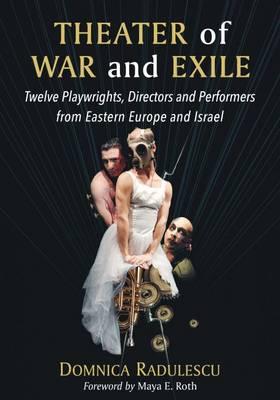Overview
In what ways does political trauma influence the shapes of theater art inspired by it? Can one speak of an aesthetic of war and exile in theatrical works that have emerged from such experiences? And are there cultural markers that define such works from the areas of Eastern Europe and Israel? These are the question at the core of Radulescu's examinations of plays, performances and theater artists that speak from a place of political violence and/or displacement. Radulescu's critical explorations stretch out across a wide variety of theatrical experimentations from the use of Brechtian distancing, to black humor and pastiche, from carnivalesque reversals and surreal or hyper-real images to reversed chronologies and disrupted narratives. Relying on postmodern theories and performance studies, as well as gathering a large amount of interviews and personal statements from the artists discussed, this study offers a vibrant and extensive testimony to the transformative powers of theater arts as well as to their function of catalysts for social change, healing and remembrance. It also speaks of the ability of live performance to help us find meaning after trauma.
Full Product Details
Author: Domnica Radulescu
Publisher: McFarland & Co Inc
Imprint: McFarland & Co Inc
Dimensions:
Width: 15.20cm
, Height: 1.50cm
, Length: 22.90cm
Weight: 0.370kg
ISBN: 9780786473120
ISBN 10: 0786473126
Pages: 264
Publication Date: 30 June 2015
Audience:
General/trade
,
Adult education
,
General
,
Further / Higher Education
Format: Paperback
Publisher's Status: Active
Availability: Temporarily unavailable

The supplier advises that this item is temporarily unavailable. It will be ordered for you and placed on backorder. Once it does come back in stock, we will ship it out to you.
Reviews
Recommended --<i>Choice</i>; Radulescu's examination of the theater of the Balkans, Romania, Israel, and other sites of violence and exile demonstrates the power of theater to enable the survivors of trauma to document and witness, to reclaim the real, to produce social change, and to promote the possibility of healing, both on the personal and national levels...a model for understanding how artists depict and resist unspeakable violence and living a national identity far from that nation...will surely be of interest to scholars from a wide variety of fields. --Kevin J. Wetmore, Department of Theatre Arts, Loyola Marymount University; With an exile's insight and an advocate's clarity, with a scholar's thoroughness and an artist's passionate partiality, Radulescu assembles and frames an illuminating array of recent-and-contemporary theatrical manifestations that explore war-born, genocide-inscribed trauma. --Erik Ehn, Professor and Chair of Theater Arts and Performance Studies at Brown University.
Author Information
Domnica Radulescu is a professor of French and Italian at Washington and Lee University, USA and the cofounding chair of the Women’s and Gender Studies Program. She has authored, edited, or coedited nine scholarly books and collections of essays, two best-selling novels, and numerous articles. She is the founding director of the National Symposium of Theater in Academe. She is a 2011 recipient of the Outstanding Faculty Award from the State Council of Higher Education for Virginia.



